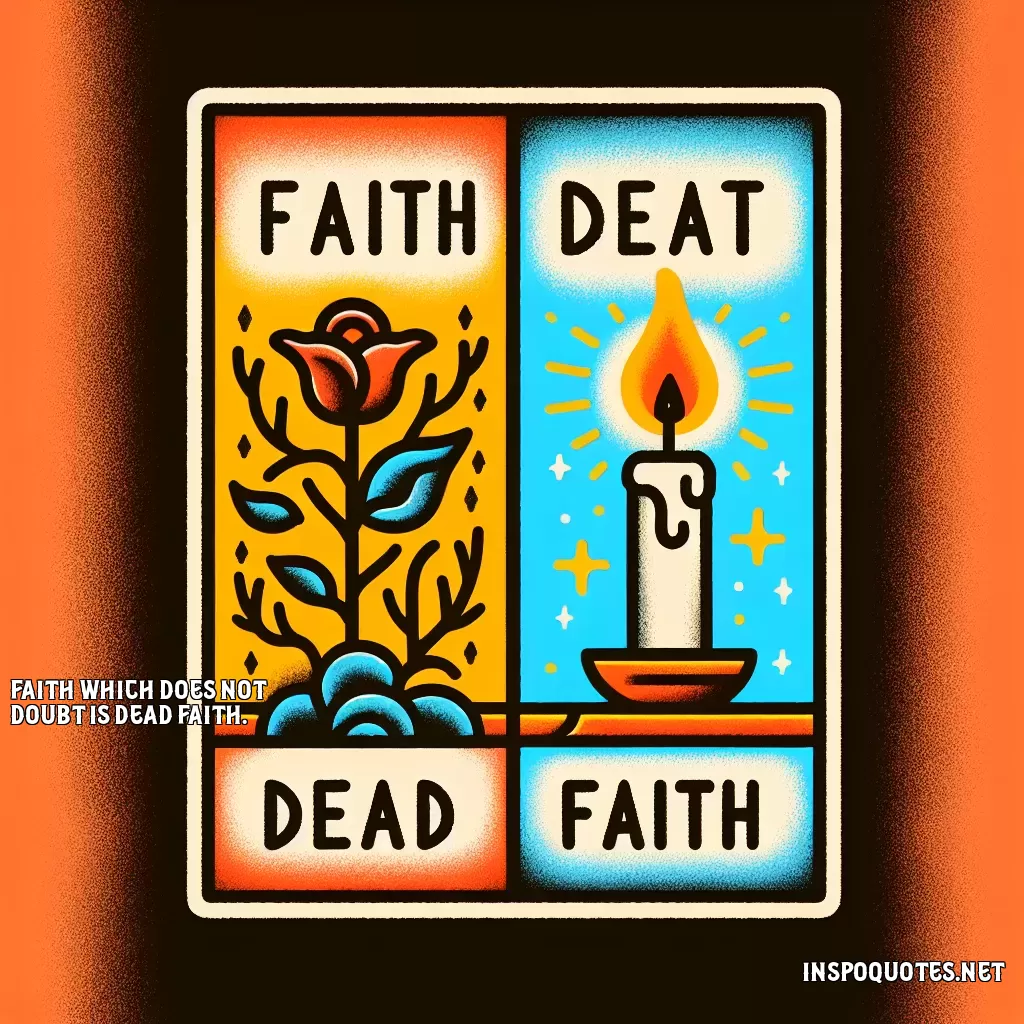
Faith which does not doubt is dead faith.
Author: A. W. Tozer
👁️ 8 views
The quote "Faith which does not doubt is dead faith" suggests that faith truly thrives when it engages with doubt and questioning. At first glance, faith and doubt might appear as opposites. Faith is often described as confidence or trust in something, particularly without empirical evidence. Doubt, on the other hand, is the questioning or uncertainty of those beliefs. However, the juxtaposition of these two concepts is exactly what this quote embodies. Doubt serves as an essential component of living faith. Without doubt, faith can become stagnant, unexamined, and potentially dogmatic. When people refuse to question their beliefs, they may hold onto them rigidly without understanding or growth. Doubt encourages individuals to explore their beliefs more deeply; it prompts critical thinking and introspection. Through this process, one's faith can become more meaningful and resilient. By confronting and addressing doubts, individuals have the opportunity to refine their beliefs, root out misconceptions, and arrive at a deeper understanding of their faith. Furthermore, doubt can foster humility, reminding individuals of the limits of their understanding and encouraging openness to new ideas and perspectives. In this way, doubts are not obstacles but rather pathways to a richer, more authentic faith experience. Ultimately, faith that integrates doubt allows for a dynamic, living belief system, responsive to new experiences and learnings, unlike a 'dead' faith that is rigid, unquestioned, and inflexible.
Quote By: A. W. Tozer
Aiden Wilson Tozer, commonly known as A. W. Tozer, was a prominent Christian author and pastor whose writings have inspired countless believers across the globe. Born on April 21, 1897, in La Jose, Pennsylvania, Tozer grew up in a humble environment, influenced by a deep-seated desire for spiritual understanding and truth. He experienced a transformative encounter with God at the age of 17, which set him on a path of deep devotion and commitment to his faith.
Tozer's career began as a pastor in the Christian and Missionary Alliance (C&MA) denomination, where he was known for his powerful preaching and profound insights into the nature of God. Over the years, he served as the pastor of several churches, most notably, the Southside Alliance Church in Chicago, Illinois, which he led for over 30 years. His pastoral work was characterized by a passionate emphasis on a personal relationship with God, and he became a sought-after speaker at various Christian conferences and retreats.
A. W. Tozer's literary contributions are extensive, comprising more than 40 books, many of which have become classics in Christian literature. His most famous work, "The Pursuit of God," is a timeless exploration of the believer's relationship with the Divine, emphasizing the importance of spiritual intimacy and the necessity of seeking God with a sincere heart. Other notable works include "Knowledge of the Holy," where he articulates the attributes of God, and "The Root of the Righteous," which challenges Christians to examine their faith and practices critically.
Tozer's writing style combines deep theological insight with a poetic and engaging prose, making complex spiritual truths accessible to the average reader. His thoughts on worship, holiness, and the nature of God continue to resonate with contemporary Christians, reflecting his enduring legacy as a spiritual thinker and leader. A. W. Tozer passed away on May 12, 1963, but his profound insights and teachings remain influential, encouraging believers to pursue an authentic experience of God's presence in their lives. Through his works and teachings, A. W. Tozer has cemented his place as a vital voice in the landscape of Christian spirituality.